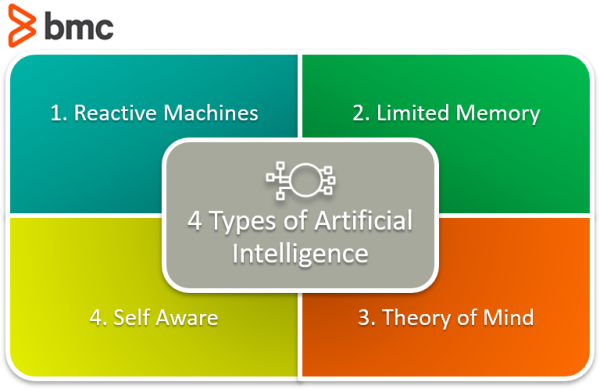How To Stay Ahead Of The AI Curve

Are you eager to keep up with the rapid advancements in artificial intelligence? Look no further, as this article will provide you with valuable insights on how to stay ahead of the AI curve. Whether you’re a professional or simply curious about this exciting field, you’ll discover practical tips and strategies that will help you navigate the ever-changing landscape of AI. So prepare to expand your knowledge, enhance your skills, and embrace the limitless possibilities that AI holds for the future.

Invest in Continuous Learning
Embrace Lifelong Learning Opportunities
To stay ahead of the AI curve, it is crucial to embrace lifelong learning opportunities. The field of AI is constantly evolving, and new technologies and techniques are being developed at a rapid pace. By committing to ongoing learning, you can stay up to date with the latest advancements and acquire the skills and knowledge necessary to effectively leverage AI in your business. This can be done through attending workshops, conferences, and seminars, as well as enrolling in online courses or pursuing further education in AI-related fields.
Follow AI Industry Trends
Following AI industry trends is essential for staying ahead in this rapidly advancing field. By staying informed about the latest developments, breakthroughs, and best practices in AI, you can identify opportunities to incorporate new technologies and techniques into your business strategies. This can be accomplished by regularly reading industry publications, following influential thought leaders and organizations on social media, and participating in AI-focused forums and communities.
Participate in AI Training Programs
Participating in AI training programs can provide you with the necessary knowledge and skills to effectively implement AI in your organization. These programs can range from comprehensive courses offered by universities to shorter, more specialized training sessions conducted by industry experts. By investing in AI training programs, you can ensure that you and your team are equipped with the latest tools and techniques, enabling you to make informed decisions and drive innovation in your business.
Optimize Data Collection and Analysis
Collect Relevant and Diverse Data Sets
Optimizing data collection is a crucial step in leveraging AI effectively. To ensure accurate and insightful results, it is essential to collect relevant and diverse data sets. This involves gathering data from various sources to capture a wide range of perspectives and insights. By including data from diverse demographics, industries, and geographical regions, you can eliminate bias and produce more accurate and inclusive AI models.
Leverage Advanced Data Analytics Tools
To optimize data analysis, it is important to leverage advanced data analytics tools. These tools can efficiently process and analyze large volumes of data, extracting valuable insights and patterns that might have otherwise gone unnoticed. By utilizing tools such as machine learning algorithms, natural language processing, and predictive modeling, you can gain a deeper understanding of your data and make data-driven decisions that drive business growth and innovation.
Implement Data Privacy and Security Measures
Optimizing data collection and analysis goes hand in hand with implementing robust data privacy and security measures. As you strive to harness the power of AI, it is crucial to protect the data you collect from unauthorized access, breaches, and misuse. Implementing encryption, access controls, and monitoring systems can help ensure that your data remains secure and in compliance with relevant privacy regulations. By prioritizing data privacy and security, you can build trust with your customers and stakeholders, fostering stronger relationships and long-term success.
Develop AI Expertise
Hire AI Professionals
Developing AI expertise within your organization starts with hiring skilled professionals in the field. Look for individuals with a deep understanding of AI technologies and methodologies, as well as a passion for continuous learning and innovation. By assembling a team of AI professionals, you can foster a culture of expertise and collaboration, ensuring that you have the necessary talent and knowledge to tackle complex AI challenges and drive your business forward.
Invest in AI Research and Development
Investing in AI research and development is another key aspect of developing expertise in the field. By allocating resources to R&D initiatives, you can stay at the forefront of AI advancements and uncover new opportunities for innovation. This can involve partnering with academic institutions or research organizations, conducting in-house research projects, or collaborating with external experts. By investing in AI R&D, you can enhance your organization’s capabilities, develop proprietary AI technologies, and position yourself as a leader in the industry.
Establish an AI Center of Excellence
Establishing an AI Center of Excellence (CoE) can help consolidate and streamline AI efforts within your organization. A CoE serves as a centralized hub for AI expertise, resources, and best practices. It brings together experts from different domains and departments to drive collaboration, standardization, and knowledge sharing. By establishing an AI CoE, you can create a supportive environment for innovation and ensure that AI initiatives align with your broader business objectives. This centralized approach can lead to more efficient and effective AI implementation, enabling you to stay ahead of the AI curve.

Embrace Automation
Identify AI Opportunities for Process Automation
Embracing automation is a key strategy to stay ahead in the AI landscape. Start by identifying areas in your business processes that can benefit from AI-powered automation. Look for tasks or workflows that are repetitive, time-consuming, and prone to errors. By automating these processes, you can free up valuable time and resources, allowing your team to focus on higher-value work and strategic initiatives. This not only improves efficiency but also enhances job satisfaction and empowers employees to contribute more meaningfully to the organization.
Implement Robotic Process Automation (RPA)
Robotic Process Automation (RPA) is a technology that enables the automation of repetitive, rule-based tasks using software robots or “bots”. By implementing RPA, you can accelerate and streamline processes, reduce errors, and improve overall productivity. RPA can be particularly effective in areas such as data entry, invoice processing, customer support, and HR onboarding. By automating these tasks, you can optimize resource allocation, reduce costs, and improve customer experience.
Integrate AI-powered Tools and Software
To fully embrace automation, it is essential to integrate AI-powered tools and software into your existing systems and workflows. These tools can range from chatbots and virtual assistants that enhance customer interactions to machine learning algorithms that optimize supply chain management or demand forecasting. By integrating AI into your business processes, you can leverage its capabilities to gain insights, make data-driven decisions, and drive efficiencies across your organization.
Build a Collaborative Work Environment
Foster Cross-functional Collaboration
Building a collaborative work environment is crucial for staying ahead of the AI curve. By fostering cross-functional collaboration, you can break down silos, encourage knowledge sharing, and drive innovation. Create opportunities for different teams and departments to collaborate on AI initiatives, allowing them to leverage their unique perspectives and expertise. By bringing together diverse skillsets and perspectives, you can drive creative problem-solving and uncover new opportunities for growth.
Encourage Knowledge Sharing
Encouraging knowledge sharing is essential for building a collaborative work environment. Provide platforms and channels for employees to share their experiences, insights, and best practices related to AI. This can be done through internal forums, communities of practice, or regular cross-functional meetings. By sharing knowledge, you can foster a culture of continuous learning and improvement, enabling everyone in your organization to contribute to the successful integration and utilization of AI technologies.
Promote Diversity and Inclusion
Promoting diversity and inclusion is not only important from an ethical standpoint but also crucial for building a high-performing AI-driven organization. Embrace diverse perspectives, backgrounds, and experiences within your team. By promoting diversity and creating an inclusive work environment, you can tap into a wider range of ideas, approaches, and problem-solving strategies. This can lead to more innovative AI solutions, better decision-making, and a more engaged and productive workforce.
Stay Agile and Adaptive
Embrace Agile Methodologies
To stay ahead of the AI curve, it is important to embrace agile methodologies in your AI projects. Agile methodologies, such as Scrum or Kanban, prioritize collaboration, flexibility, and iterative development. By adopting an agile approach, you can quickly respond to changes, incorporate feedback, and deliver high-quality AI solutions in shorter timeframes. This allows you to stay adaptable and responsive to evolving business needs and technological advancements.
Implement DevOps Practices
Implementing DevOps practices can further enhance agility in AI implementations. DevOps fosters collaboration between development and operations teams, promoting continuous integration, deployment, and delivery of software. By automating processes, utilizing version control, and implementing continuous testing and monitoring, you can accelerate the development and deployment of AI models and algorithms. This allows you to adapt quickly to changing requirements and deliver value to your organization and customers faster.
Adopt a Growth Mindset
Adopting a growth mindset is crucial for staying ahead in the AI landscape. Embrace the mindset that challenges and failures are opportunities for learning and improvement. Encourage your team to experiment, take risks, and continuously seek new ways to enhance AI capabilities. By cultivating a growth mindset, you can create a culture of innovation and resilience, enabling your organization to adapt and thrive in the face of AI disruption.
Ethical Considerations in AI
Understand AI Bias and Mitigate it
When leveraging AI technologies, it is important to understand and mitigate AI bias. AI algorithms are only as good as the data they are trained on, and if that data is biased, the AI system will reflect those biases, potentially leading to discrimination or unfair outcomes. It is crucial to carefully curate and evaluate the data used to train AI models, ensuring that it represents a diverse range of perspectives and is free from biased assumptions. Additionally, ongoing monitoring and evaluation of AI systems can help identify and address any bias that may arise during their operation.
Develop Ethical AI Guidelines
Developing ethical AI guidelines is essential for ensuring responsible and unbiased use of AI technologies. These guidelines should establish principles and values that guide the development, deployment, and use of AI in your organization. Consider factors such as fairness, transparency, accountability, and privacy when developing AI guidelines. By adhering to ethical standards, you can build trust with stakeholders and ensure that AI technologies are used in a manner that benefits society as a whole.
Ensure Transparency and Accountability
Transparency and accountability are critical in the use of AI technologies. It is important to provide clear explanations of how AI systems make decisions and recommendations, especially when they have a significant impact on individuals or communities. By ensuring transparency, you can build trust and mitigate concerns about AI being used in a secretive or manipulative manner. Additionally, establishing mechanisms for accountability, such as regular audits or third-party evaluations, can help ensure that AI systems are being used responsibly and in accordance with ethical guidelines.
Monitor and Evaluate AI Implementations
Set Key Performance Indicators (KPIs)
To effectively monitor and evaluate AI implementations, it is important to establish key performance indicators (KPIs). These KPIs should align with your organization’s strategic objectives and reflect the desired outcomes of your AI initiatives. KPIs can include metrics such as accuracy, efficiency, customer satisfaction, or revenue growth. By setting clear KPIs, you can measure the success and impact of your AI implementations and make data-driven decisions to continuously optimize AI models and algorithms.
Implement Regular Performance Reviews
Regular performance reviews are essential for monitoring the effectiveness of AI implementations. Conduct periodic assessments to evaluate the performance of AI systems, identify areas for improvement, and address any issues that may arise. This can involve analyzing performance metrics, gathering feedback from users, or conducting in-depth evaluations. By consistently reviewing AI performance, you can identify opportunities for optimization, ensure ongoing alignment with organizational goals, and maintain a high level of system performance.
Continuously Optimize AI Models
AI models and algorithms require continuous optimization to remain effective and relevant. As new data becomes available, techniques improve, or business needs change, it is important to regularly update and refine your AI models. This can involve retraining models with updated data, fine-tuning algorithms to improve accuracy, or incorporating new techniques or technologies. By continuously optimizing your AI models, you can ensure that they remain robust, accurate, and capable of delivering maximum value to your organization.
Stay Cybersecurity Conscious
Protect AI Systems from Cyber Threats
As AI systems become more prevalent, it is crucial to protect them from cyber threats. Implement robust cybersecurity measures to safeguard your AI systems and the data they process and store. This includes regularly updating software and firmware, implementing strong access controls and authentication mechanisms, and monitoring for any unauthorized activities or vulnerabilities. By treating AI systems as critical assets, you can mitigate the risk of cyberattacks and protect both your organization and the individuals whose data is being processed.
Ensure Data Privacy Compliance
Data privacy compliance is another essential aspect of staying cybersecurity conscious in the AI era. Ensure that your AI initiatives adhere to relevant data protection regulations, such as the General Data Protection Regulation (GDPR) or the California Consumer Privacy Act (CCPA). This involves implementing appropriate safeguards to protect personal data, obtaining informed consent from individuals whose data is being processed, and providing them with transparent information about how their data is being used. By prioritizing data privacy compliance, you can build trust with your customers and protect your organization from legal and reputational risks.
Train Employees on Cybersecurity Best Practices
Leveraging AI effectively requires not only technical measures but also a workforce that is educated on cybersecurity best practices. Provide regular training and awareness programs to your employees, educating them on the risks associated with AI and how to mitigate them. This can include topics such as recognizing phishing attempts, creating strong passwords, and practicing secure data handling procedures. By empowering your employees with the knowledge and skills to identify and respond to cybersecurity threats, you can create a strong line of defense against potential attacks.
Prepare for AI Disruption
Assess AI’s Impact on the Business
Preparing for AI disruption starts with assessing its potential impact on your business. Conduct a comprehensive analysis to understand how AI technologies can transform your industry, market, and competitive landscape. Identify areas where AI can disrupt existing business models, create new opportunities, or alter customer expectations. This assessment will provide the foundation for strategic planning and allow you to proactively respond to AI-driven changes.
Identify Potential Disruptions and Adapt
Once you have assessed the impact of AI on your business, it is crucial to identify potential disruptions and adapt accordingly. Anticipate how AI technologies may disrupt your industry or specific business functions and develop strategies to address these disruptions. This may involve exploring new business models, acquiring or partnering with AI-focused companies, or upskilling and reskilling your workforce to meet changing demands. By proactively adapting to AI-driven disruptions, you can position your organization for long-term success in a rapidly changing landscape.
Keep Up with Competitive AI Advancements
To stay ahead of the AI curve, it is essential to keep up with competitive AI advancements. Monitor the activities of your competitors, industry leaders, and AI startups to understand their AI strategies, initiatives, and innovations. This can involve regularly scanning industry publications, attending conferences and webinars, and actively networking with AI experts and professionals. By staying informed about competitive AI advancements, you can identify potential opportunities, benchmark your own AI initiatives, and ensure that your organization remains at the forefront of AI innovation.
In conclusion, staying ahead of the AI curve requires a proactive and comprehensive approach. By investing in continuous learning, optimizing data collection and analysis, developing AI expertise, embracing automation, building a collaborative work environment, staying agile and adaptive, considering ethical implications, monitoring and evaluating AI implementations, staying cybersecurity conscious, and preparing for AI disruption, you can position your organization for success in the AI-driven future. Embrace the opportunities and challenges that AI presents and make it a strategic priority to stay ahead in this ever-evolving field.






